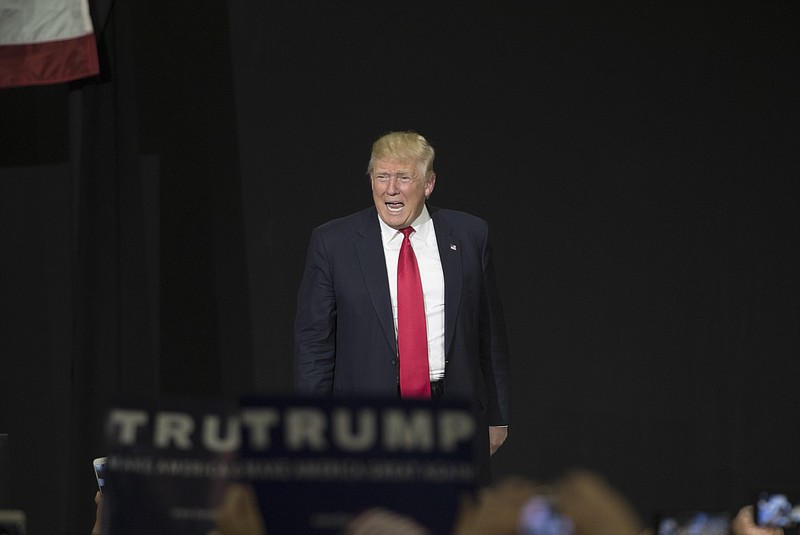Target of discrimination
A day after President Donald Trump announced a rally at Target Center in Minneapolis late last month, the city's police department announced that off-duty police personnel could no longer wear their uniforms to political events.
The department, of course, said it was all about avoiding the appearance of political bias. The head of the local police union charged it was a political move meant to favor city Democratic officials.
One of the Democratic officials, Mayor Jacob Frey, had said the president's "message of hatred will never be welcome in Minneapolis."
But the cops, according to the president of the Police Officers Federations of Minneapolis, Bob Kroll, were to have the last laugh at the rally last week. Instead of wearing their blue uniforms, they all were to be in "a sea of red T-shirts," he said. The front of the shirts were to say "Cops for Trump" across an American flag in the shape of Minnesota.
In past trips to the city by Presidents Bill Clinton and Barack Obama, both Democrats, off-duty police in their uniforms were welcome.
Who's worried now?
With members of the Justice Department and other investigatory groups closing in on how and why then-candidate Donald Trump came under the scrutiny of the Obama administration FBI from phony information, former Obama National Intelligence Director James Clapper is feeling a little nervous.
The same man who went from show to show during special counsel Robert Mueller's investigation of Russia interference with the 2016 presidential election trashing Trump and expounding on how guilty he was now has thrown his former boss under the bus.
"Are you concerned that [the investigations] will find wrongdoing and seek to punish former intelligence officials?" CNN Newsroom host Jim Sciutto asked him last week.
"Well, I, uh, I don't know," Clapper stuttered. "I, I don't think there was any wrongdoing. I think at the time all of us were trying to navigate a very, very difficult, politically fraught, highly charged situation."
He then was asked if intelligence officials should have just ignored the Russia meddling and "oh, by the way, blown off what the then-commander-in-chief, President Obama, told them to do?" He later said, "It's kind of disconcerting now to be investigated for, you know, having done our duty and done what we were told to do by the president."
Fact-checking the fact checker
Fact-checking websites once seemed like sources of truth until they were proven to be, like many media, biased.
PolitiFact showed its lack of veracity last week when it attempted to prove President Donald Trump wrong on a tweet about predecessor Barack Obama's power to implement DACA, the Deferred Action for Childhood Arrivals program for children brought to the country by their illegal immigrant parents.
Trump tweeted that "Obama said that he did not have the right to sign DACA, that it would never hold up in court. He signed it anyway!"
Within 25 minutes, PolitiFact tweeted that the president was wrong, saying he "didn't say he lacked the right to act."
In fact, Obama said he did not have the authority at least a dozen and a half times, as others pointed out. Even a reporter at the Trump-hating Washington Post tweeted one of the Obama examples: "With respect to the notion that I can just suspend deportations through executive order, that's just not the case because there are laws on the books."
What's wrong with Kansas?
Political correctness has gotten so bad that a 12-year-old Kansas girl was arrested recently from bringing a loaded finger to school.
Responding to a question of "if she could kill five people in class, who would they be?" from a fellow student, she answered with the lack of seriousness of a pre-teen. She pointed her "finger gun" at other students, then at herself.
The teacher sent her to the principal's office, where the school resource officer suggested she be arrested. She was led away in handcuffs and charged by the Overland Park police.
In time, the middle school student was turned over to her mother, but a hearing in the Juvenile Division of the Johnson County District Court was scheduled. Her family was told if she was convicted of a felony, she could face up to a year in a juvenile detention center.
